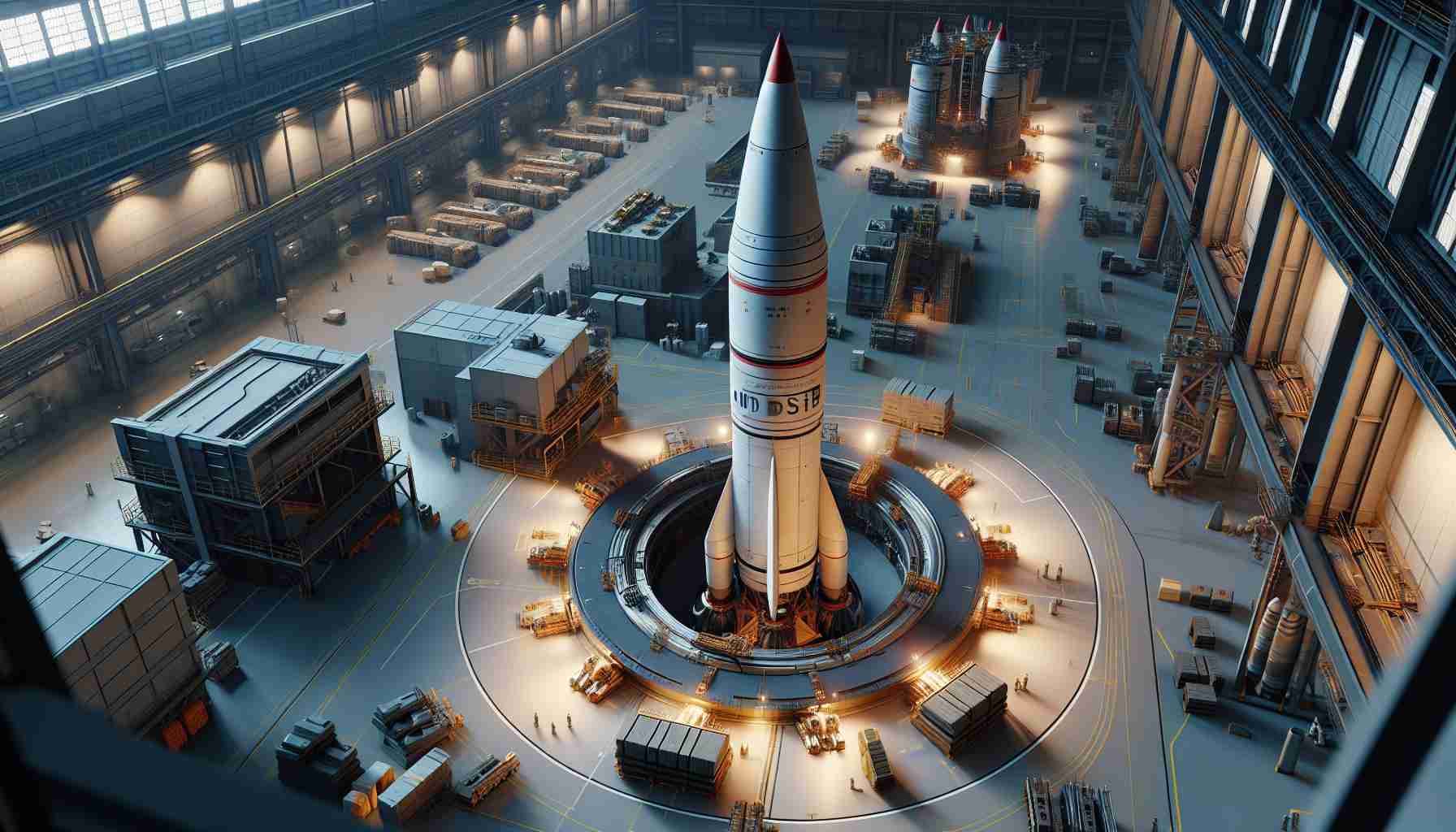Aerojet Rocketdyne, a branch of L3Harris Technologies, is strategically advancing its operations in Huntsville, Alabama, to address the rising global need for missile components. This move is largely fueled by the effective use of their Guided Multiple Launch Rocket System (GMLRS) in recent international conflicts, particularly in Ukraine and the Middle East.
Expanding Horizons: Huntsville Takes Center Stage
In a significant step announced in 2022, Aerojet leased a vast 379,000 square-foot facility near Huntsville’s airport. This expansion is pivotal for the production of inert components used in the MK 72 and MK 104 solid rocket motors, critical elements powering the Standard Missile and other prominent defense systems like Javelin and GMLRS. These components are being relocated from Camden, Arkansas, highlighting Huntsville’s growing importance in Aerojet’s production strategy.
Riding the Wave of Growth
Aerojet’s Huntsville workforce has seen impressive growth, boasting an increase to around 800 employees since 2016. This expansion aligns with L3Harris’ escalating investment in Aerojet, which has surged over 40% each year recently. Aerojet’s president emphasizes Huntsville’s favorable environment, crediting its skilled workforce and strategic location near government partners as key advantages.
The company operates three significant sites in Huntsville, including its Missile Solutions sector headquarters. Aerojet’s facilities focus on manufacturing essential components for missile programs such as THAAD and Standard Missile. This growth is not confined to Alabama, as L3Harris is also expanding its manufacturing footprint nationwide, including a new facility in Camden, Arkansas, dedicated to supporting future demands.
Game-Changing Expansion: How Aerojet Rocketdyne’s Huntsville Expansion is Shaping the Future of Defense Technology
A New Era for Missile Component Manufacturing
As global conflicts evolve and the demand for advanced defense technologies increases, Aerojet Rocketdyne—a division of L3Harris Technologies—has embarked on a significant strategic expansion in Huntsville, Alabama. This initiative is poised to transform both the local economy and the broader landscape of defense manufacturing, with implications reaching far beyond the borders of the United States.
How Huntsville’s Expansion Influences Global Tech Advances
This growth is not merely a local affair; it has the potential to inspire technological advancements on a global scale. By increasing production capacity with the new 379,000 square-foot facility, Aerojet Rocketdyne is set to play a vital role in accelerating technological innovations. This expansion could serve as a critical catalyst for the next generation of missile technologies, which are pivotal in global conflict scenarios such as those in the Middle East and Ukraine.
Interesting Facts and Controversies in Defense Manufacturing
One compelling aspect of Aerojet’s expansion is its potential to influence the international arms race. As countries strive to fortify their defense arsenals, companies like Aerojet are central to providing superior, state-of-the-art missile components. This raises important ethical discussions about defense industry growth fueling military confrontations, controversy surrounding the balance between national security and global peace.
Advantages and Disadvantages of the Expansion
The strategic expansion offers several advantages:
– Economic Growth: The expanding workforce in Huntsville signifies job creation and economic prosperity for the local community.
– Productivity and Innovation: Increased manufacturing capabilities could drive further innovations in missile technology, aiding national and global defense initiatives.
However, there are disadvantages to consider:
– Ethical Implications: The boost in missile production raises ethical questions regarding its impact on international relations and global security.
– Resource Allocation: Redirecting resources to defense manufacturing might affect their availability for other critical sectors such as health and education.
Asking the Tough Questions: Security or Escalation?
With Aerojet’s expanded presence, a critical question surfaces: Does increased production of missile components contribute to greater security, or does it risk escalating conflict? The answer isn’t clear-cut, as enhanced defense systems can act as deterrents for potential aggressors, yet they may also incite rival nations to bolster their own arsenals.
Conclusion: Navigating the Complex Landscape of Defense Technologies
Aerojet Rocketdyne’s expansion in Huntsville serves as a microcosm of the broader challenges faced in the realm of defense technology. As this sector grows, it presents both opportunities for advancement and obstacles that necessitate careful ethical considerations. How the world navigates these developments will shape the future of both technology and international peace.
For those interested in further exploring the world of aerospace and defense technology, consider visiting L3Harris Technologies for the latest updates.
By looking at the broader implications of Aerojet’s expansion, it becomes clear that the intersection of defense technology and global politics remains a fascinating, albeit complex, field.







